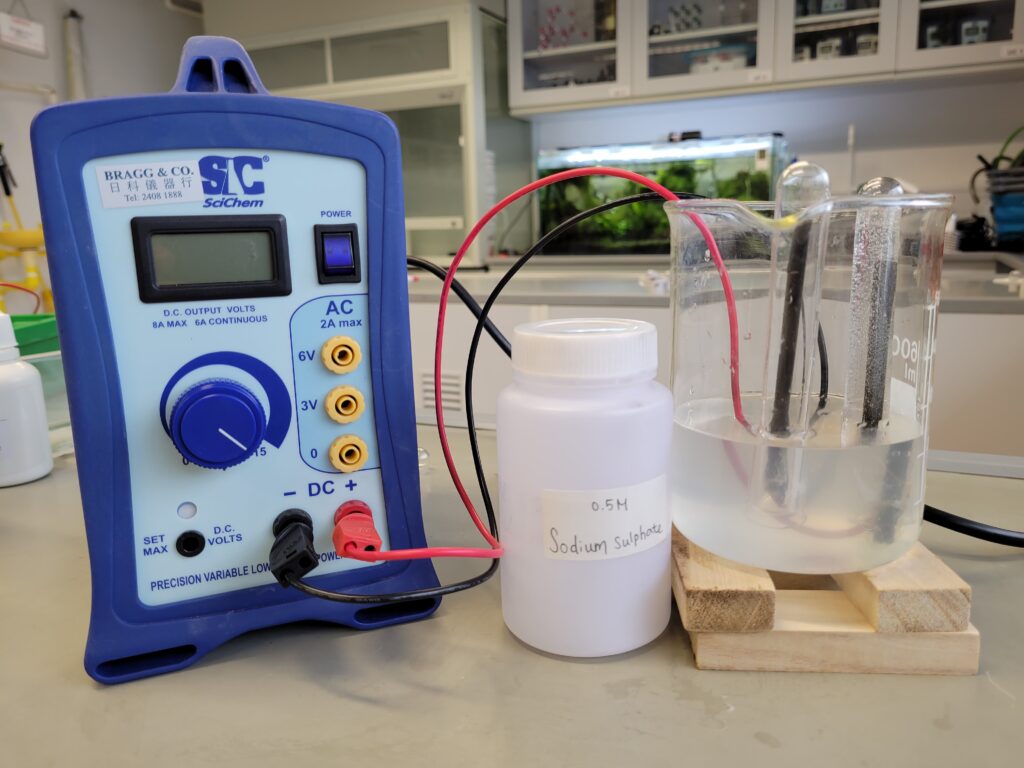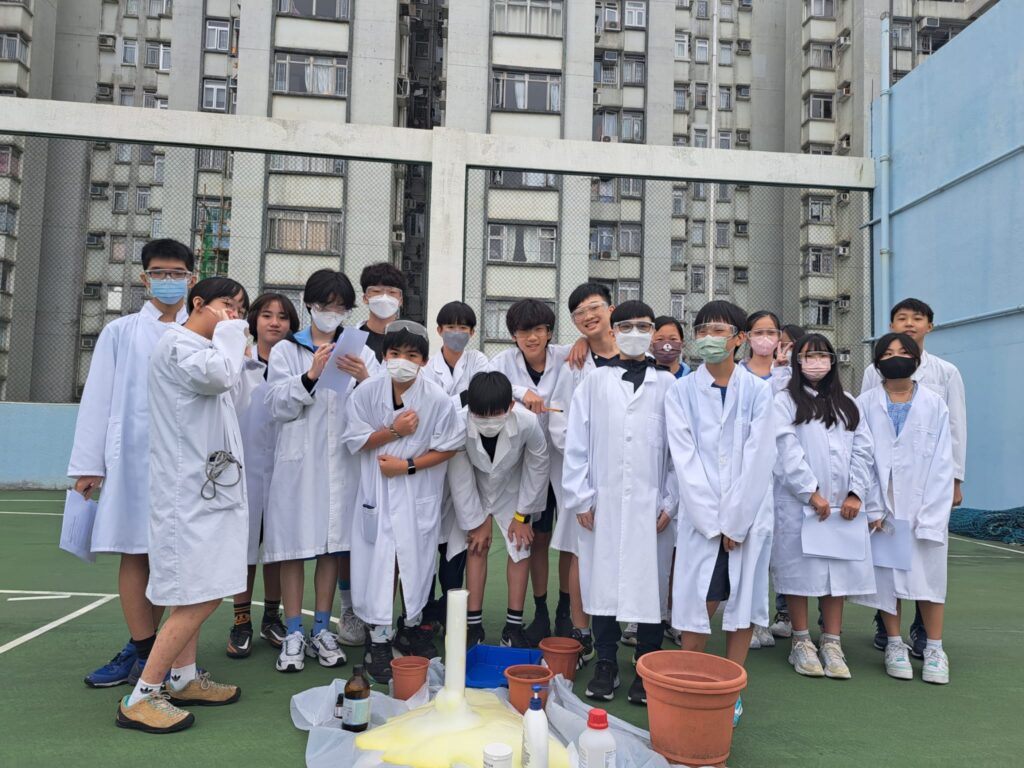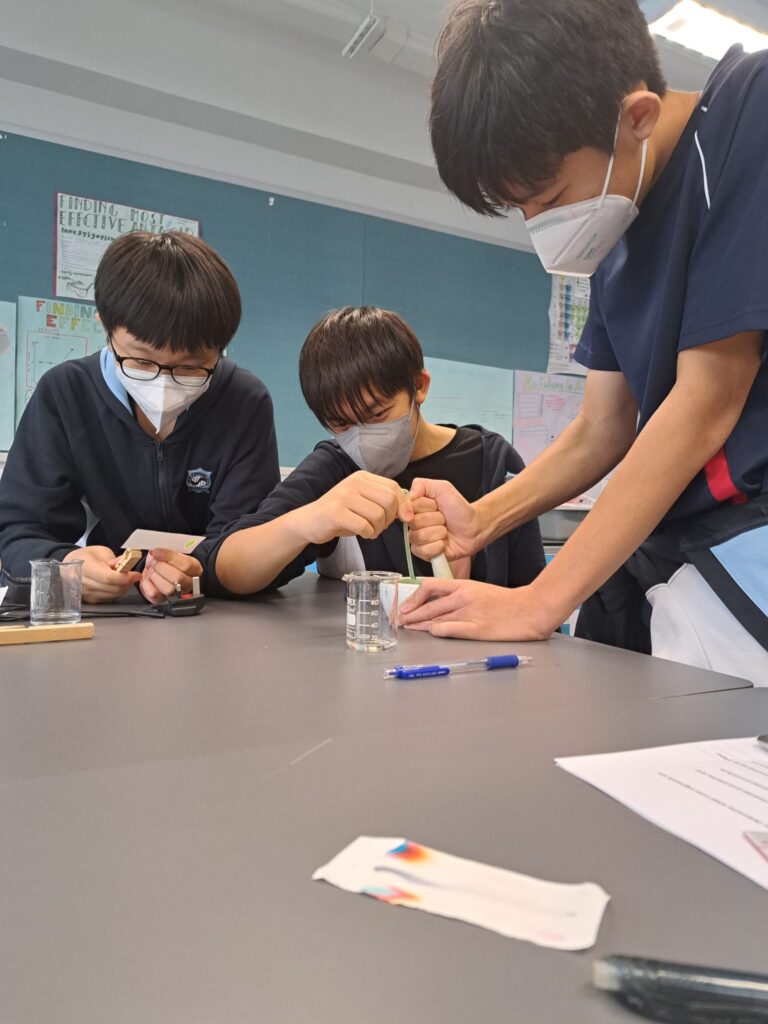SCIENCE
“Somewhere, something incredible is waiting to be known.”
Carl Sagan
Introduction
Welcome to the Science Department at KIS! Our primary objective is to foster an understanding and appreciation for the wonders of the scientific world among our students. We empower them with the knowledge and tools needed to explore, question, and analyse the natural phenomena that shape our world. Through hands-on experiments and interactive lessons, we aim to cultivate a scientific mindset and nurture curiosity in our students. By doing so, we are preparing the next generation of scientists, engineers, inventors, and problem solvers. Join us in this exciting journey of discovery as we inspire and equip students to make meaningful contributions to the world through science.
Learning Pathway

Assessment Procedure


Mr. Roland Wang, Head of Science
- Master of Science, Water Resource Management, University of Wisconsin-Madison
- Bachelor of Science, Natural Resources and Development Sociology, Cornell University
Mr. Wang is an experienced educator who has been teaching since 2015. He has a diverse teaching background, having taught both lower and upper-secondary school students in the United States and China. Mr. Wang is experienced in a variety of courses in both the Cambridge curriculum and Advanced Placement, including Biology, Environmental Science, and General (Combined) Science. He likes to challenge students to explore real-world phenomena by encouraging them to delve into the “how’s” and “why’s.” Through group discussions and collaborative activities, Mr. Wang fosters an environment where students can express their thoughts, ideas, and questions.
| Biology | Chemistry | Marine Science | Physics | STEM | Lab Technicians |
|---|---|---|---|---|---|
| Mr. Alan Fok Ms. Reena Purohit | Ms. Hanna Jeong Ms. Vincy Yuen | Mr. Alan Fok Mr Roland Wang | Mr. Karl Marriot Ms. Saraiah Rosales | Ms Ariana Ong | Mr David Kang Ms. Madhavi Putchakayala |
From Year 7 to 9, KIS students will progress through the Cambridge Lower Secondary Science curriculum (0894) (Link). The curriculum provides students with the foundational knowledge and practical skills needed to be successful in Key Stage 4 and 5. The curriculum aims to improve learners’ awareness of science in the world around them develops their sense that ‘science is for me’, helping to connect themselves to the subject.
During the second term of Year 9, students must select at least one of the four Cambridge IGCSE science subjects offered at KIS. Choosing an IGCSE subject can be challenging for students. Therefore, we suggest students ask themselves the following questions:
- Am I interested in the subject?
- How comfortable am I with the concepts and content covered in each science subject?
- Do I want to continue learning the subject at A-Level and at university?
- What are my future career goals?
Lower Secondary Science Topics
| Year | Biology | Chemistry | Physics |
|---|---|---|---|
| 7 | – Cells – Classifying life – Environment and ecosystems | – Classifying matter – Chemical changes and reactions – Explaining properties of matter | – Electricity – Energy and sound – Forces in space |
| 8 | – Ecology and the environment – Human health – Respiratory system | – Atomic structure and chemical reactions – Gases – Liquids | – Light and colour – Speed, motion and forces – Space and Earth science |
| 9 | – Human biology – Plant biology – Species and the environment | – Chemical bonding – Chemical reactions – Chemical structures and properties | – Earth and beyond – Electricity – Sound and energy |
STEM
In addition to the Cambridge Lower Secondary Science curriculum, our students also participate in STEM classes from Year 7 to 9. STEM, which stands for science, technology, engineering, and mathematics, provides an interdisciplinary approach to education. Originally developed in the United States during the late 1990s and early 2000s, STEM has since expanded globally.
At KIS, we designed our own STEM program, developed and continuously refined by our science teachers. Our students have the opportunity to engage with a range of tools including 3D printers and laser cutters. In addition, they acquire skills in computer programming and learn to design and create robots using LEGO and LittleBits kits.
By immersing our students in these hands-on experiences, we aim to foster their creativity, problem-solving abilities, and critical thinking skills. Our STEM program provides a unique and comprehensive learning journey, preparing students for the challenges and opportunities of the modern world.
Textbooks
| Year 7 | Year 8 | Year 9 |
|---|---|---|
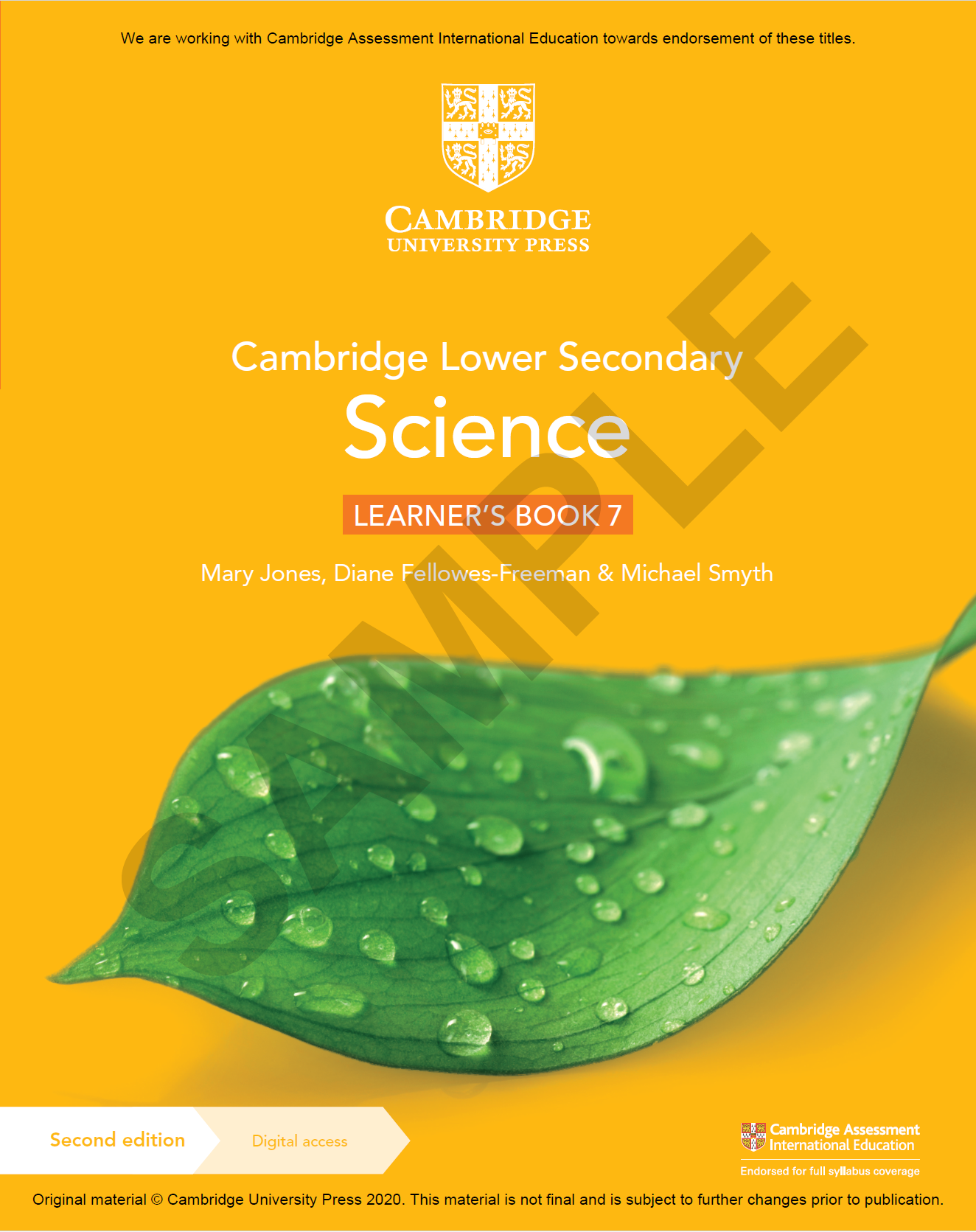 | 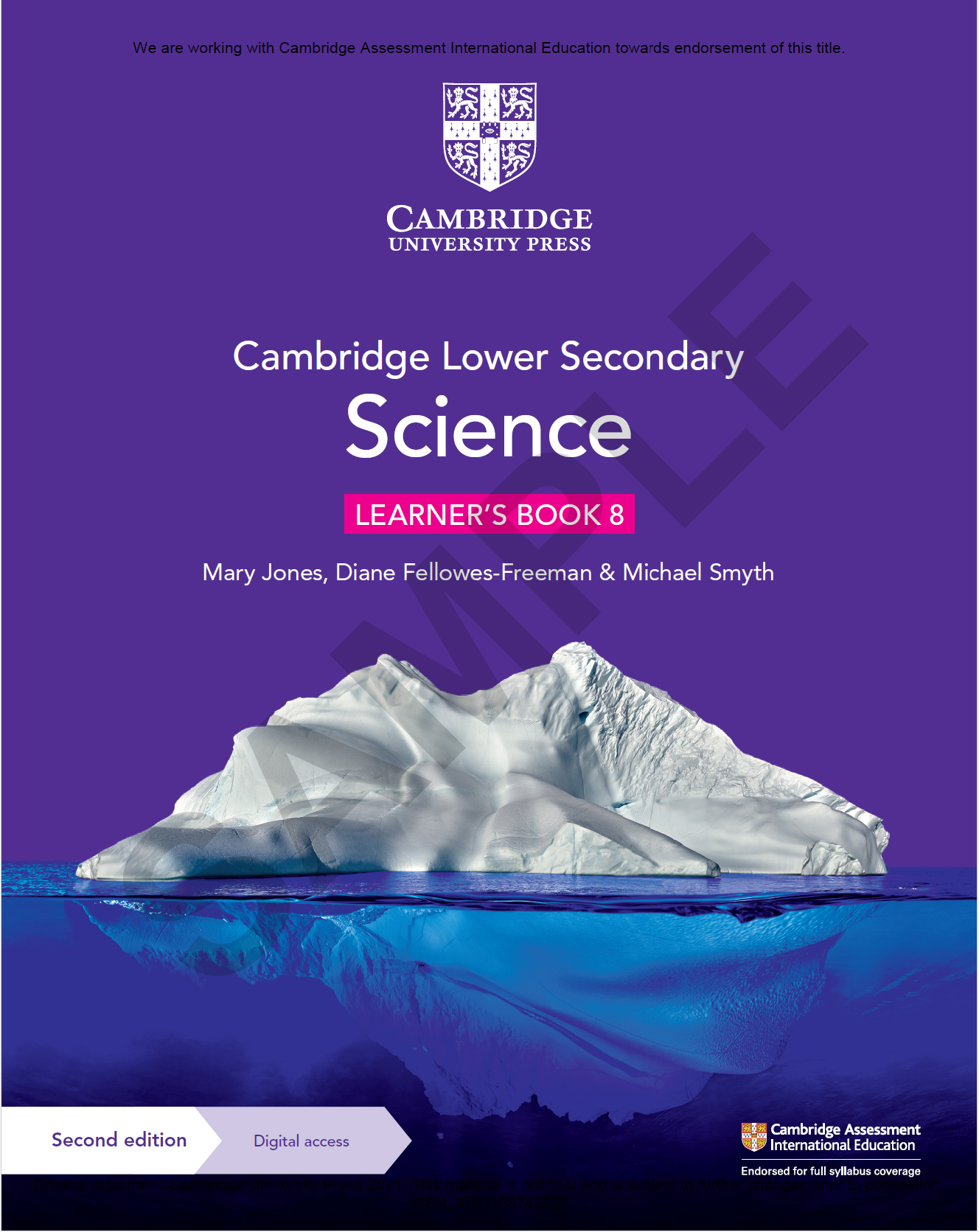 | 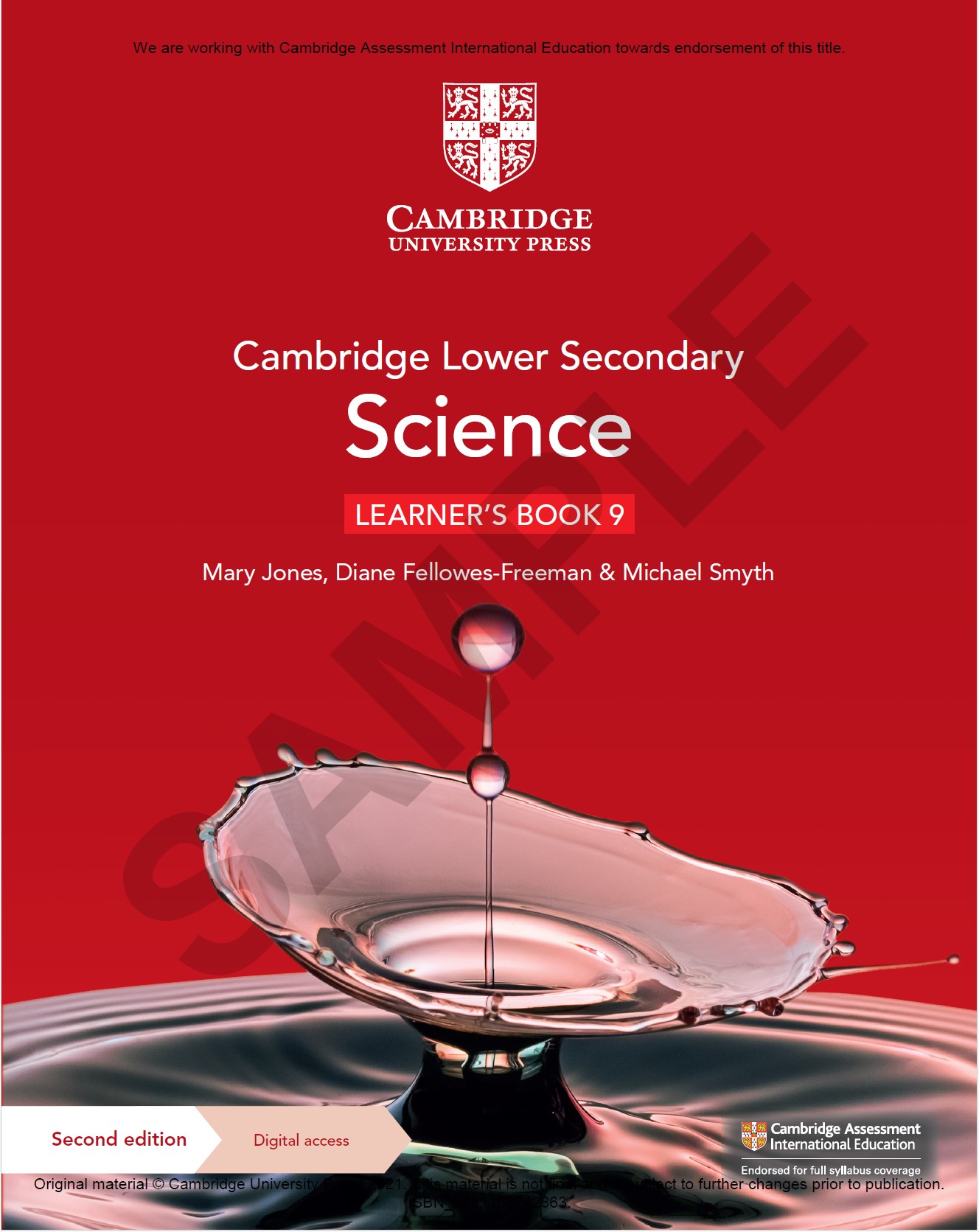 |
| Cambridge Lower Secondary Science Learner’s Book 7 with Digital Access (1 Year) ISBN:9781108742788 | Cambridge Lower Secondary Science Learner’s Book 8 with Digital Access (1 Year) ISBN:9781108742825 | Cambridge Lower Secondary Science Learner’s Book 9 with Digital Access (1 Year) ISBN:9781108742863 |
Assessment Procedures
Students in Year 7 to 9 will take two ‘End of Term’ assessments held in January and June which serve as summative evaluations of their learning. In addition, students will also take ‘unit tests’ throughout the year to assess their understanding of the specific unit.
Specifically for Year 9 students, they will be required to take the Cambridge Lower Secondary Checkpoint exam (Link) held between April and May. The exam serves as an assessment of the Year 9 learning objectives covered in the Lower Secondary Science curriculum. The Checkpoint exam is marked externally by Cambridge International.
There are no exam-based assessments for STEM. Students complete individual and group projects.
At KIS, we only follow the Cambridge IGCSE curriculum (Link). We offer four subjects: Biology, Chemistry, Marine Science and Physics. The goal of the IGCSE curriculum is to develop a set of transferable skills including handling data, practical problem-solving and applying the scientific method. They acquire the essential scientific skills required for progression to further studies or employment.
Cambridge IGCSEs are accepted and valued by leading universities around the world as evidence of academic achievement. Many universities require a combination of Cambridge International AS & A Levels and Cambridge IGCSEs or equivalent to meet their entry requirements.
The IGCSE Biology, Chemistry, and Physics syllabi comprise of two components: Core and Extended subject content. All students taking Biology, Chemistry, or Physics are required to learn the Core subject content, which forms the foundation of the subject. The Extended subject content includes supplementary topics that provide a more comprehensive understanding of the subject. At KIS, we prioritize teaching the Extended subject content to provide our students with the most extensive knowledge and skills in their chosen science subject. This approach prepares students for success in their chosen A-Level subjects, should they decide to continue with science at A-Level.
The IGCSE Marine Science syllabus does not have a Core or Extended component.
In the second term of Year 11, students have the option to continue studying science at A-Level. It is important to note that taking an A-Level science subject is not a graduation requirement at KIS. However, students who choose to pursue A-Level science must possess prior knowledge and experience in the specific subject they wish to undertake. Additionally, they must meet the prerequisites outlined for the respective A-Level subject.
Biology 0610 Link
| Topics Covered In Year 10 | Topics Covered In Year 11 |
|---|---|
| 1 Characteristic and classification of living organisms 2 Organisation of the organism 3 Movement into and out of cells 4 Biological molecules 5 Enzymes 6 Plant nutrition 7 Human nutrition 8 Transport in plants 9 Transport in animals 10 Diseases and immunity 11 Gas exchange in humans 12 Respiration 13 Excretion in humans 14 Coordination and response | 15 Drugs 16 Reproduction 17 Inheritance 18 Variation and selection 19 Organisms and their environment 20 Human influences on ecosystems 21 Biotechnology and genetic modification |
Chemistry (0620) Link
| Topics Covered In Year 10 | Topics Covered In Year 11 |
|---|---|
| 1 States of matter 2 Atoms, elements and compounds 3 Stoichiometry 4 Electrochemistry 5 Chemical energetics 6 Chemical reactions 7 Acids, bases and salts | 8 The Periodic Table 9 Metals 10 Chemistry of the environment 11 Organic chemistry 12 Experimental techniques and chemical analysis |
Marine Sciences (0697) Link
| Topics Covered In Year 10 | Topics Covered In Year 11 |
|---|---|
| 1 The Earth and its oceans 2 Sea water 3 Marine organisms | 4 Nutrients and energy 5 Marine ecology 6 Human influences on the marine environment |
Physics (0625) Link
| Topics Covered In Year 10 | Topics Covered In Year 11 |
|---|---|
| 1 Motion, forces and energy 2 Thermal physics 3 Waves | 4 Electricity and magnetism 5 Nuclear physics 6 Space physics |
Assessment Procedure
Students in Year 10 will take two ‘End of Term’ assessments held in January and June which serve as summative evaluations of their learning. In addition, students will also take ‘unit tests’ throughout the year to assess their understanding of the specific unit.
Students in Year 11 will take a mock exam held in January. This mock exam evaluates their understanding of all the learning objectives covered from Year 10 up to the date of the mock exam. The mock exam serves as a benchmark for students, helping them identify any potential gaps in their knowledge. In addition, the mock exam provides students with an estimate of their expected grade on the upcoming IGCSE science exam.
For Biology, Chemistry and Physics only:
The mock exams help teachers determine whether students are better suited for the Core or Extended version of the IGCSE Biology, Chemistry, and Physics exam.
The IGCSE Biology, Chemistry, and Physics exam consists of three papers, depending on the assigned exam version the student will take:
- Multiple choice questions: Paper 1 (Core) or Paper 2 (Extended)
- Structured questions (Theory): Paper 3 (Core) or Paper 4 (Extended)
- Alternative to the practical: Paper 6
*Students do not take Paper 5
Students who take the Core exam will be eligible for grades C to G. Students who take the Extended exam will be eligible for grades A* to G.
For Marine Science only:
The IGCSE Marine Science exam consists of two papers
- Theory and Data Handling: Paper 1
- Theory and Practical Skills: Paper 2
*There is no practical exam
Students will be eligible for grades A* to G.
Assessment Overview (Biology, Chemistry and Physics only):
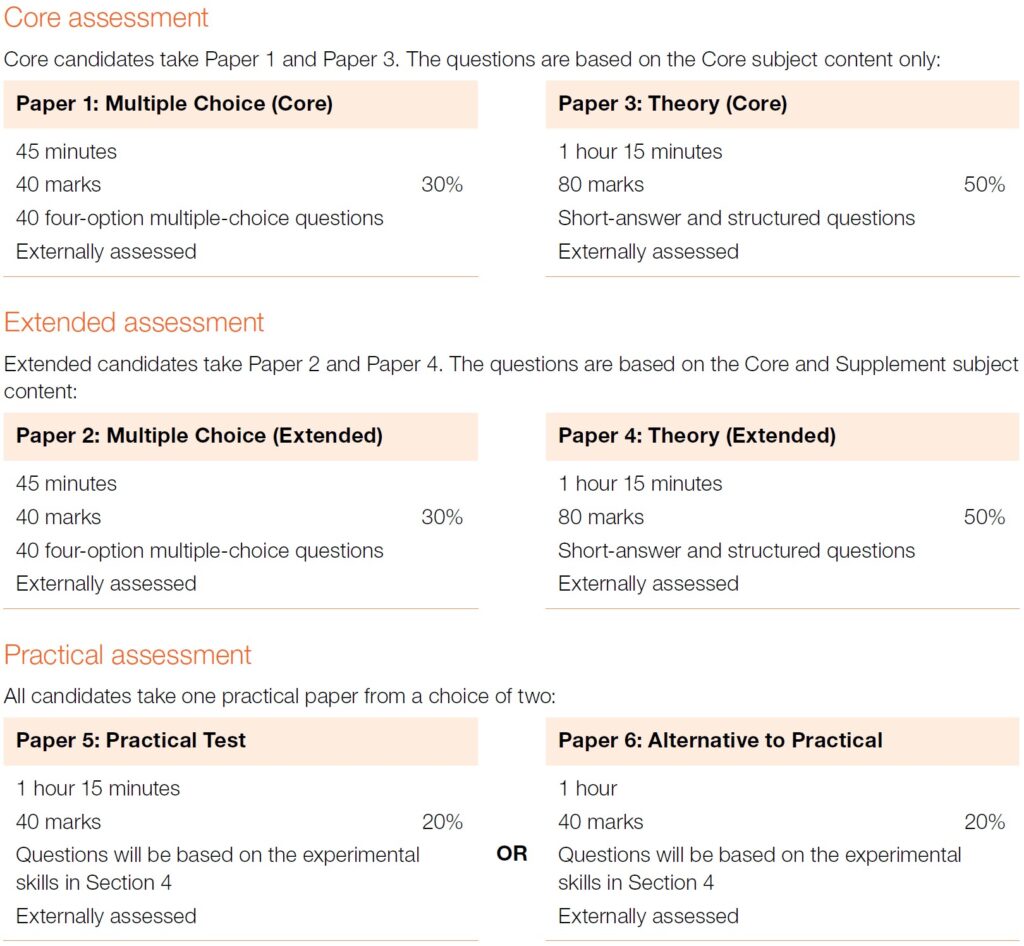
Assessment Overview (Marine Science only):

At KIS, we follow the Cambridge A-Level curriculum (Link). We offer four subjects: Biology, Chemistry, Marine Science and Physics. The goal of the A-Level curriculum is to help students develop abilities which universities value highly, including a deep understanding of their subjects; analytical, critical thinking, and problem solving skills; and independent learning and research. Cambridge A Level sciences provide a foundation for the study of biology, chemistry, marine science, physics or related courses in higher education. The A-Level qualification is valued by top universities around the world including those in the UK, US (including Ivy League universities), Europe, Australia, Canada and New Zealand.
The Cambridge A-Level curriculum is divided across two years: AS Level (Year 12) and A-Level (Year 13). The AS Level makes up the first year of the A-Level course and provides the foundation for the study of the science subject during the second year for A-Level.
Biology (9700) Link
Course Requirements: Minimum mark of C in IGCSE Biology course or equivalent.
| AS Level Content | A-Level Content |
|---|---|
| 1 Cell structure 2 Biological molecules 3 Enzymes 4 Cell membranes and transport 5 The mitotic cell cycle 6 Nucleic acids and protein synthesis 7 Transport in plants 8 Transport in mammals 9 Gas exchange 10 Infectious diseases 11 Immunity AS Level students also study practical skills | 12 Energy and respiration 13 Photosynthesis 14 Homeostasis 15 Control and coordination 16 Inheritance 17 Selection and evolution 18 Classification, biodiversity and conservation 19 Genetic technology A Level students also study practical skills |
Chemistry (9701) Link
Course Requirements: Minimum mark of C in IGCSE Chemistry course or equivalent.
| AS Level Content | A-Level Content |
|---|---|
| Physical chemistry 1 Atomic structure 2 Atoms, molecules and stoichiometry 3 Chemical bonding 4 States of matter 5 Chemical energetics 6 Electrochemistry 7 Equilibria 8 Reaction kinetics Inorganic chemistry 9 The Periodic Table: chemical periodicity 10 Group 2 11 Group 17 12 Nitrogen and sulfur Organic chemistry 13 An introduction to AS Level organic chemistry 14 Hydrocarbons 15 Halogen compounds 16 Hydroxy compounds 17 Carbonyl compounds 18 Carboxylic acids and derivatives 19 Nitrogen compounds 20 Polymerisation 21 Organic synthesis Analysis 22 Analytical techniques AS Level students also study practical skills | Physical chemistry 23 Chemical energetics 24 Electrochemistry 25 Equilibria 26 Reaction kinetics Inorganic chemistry 27 Group 2 28 Chemistry of transition elements Organic chemistry 29 An introduction to A Level organic chemistry 30 Hydrocarbons 31 Halogen compounds 32 Hydroxy compounds 33 Carboxylic acids and derivatives 34 Nitrogen compounds 35 Polymerisation 36 Organic synthesis Analysis 37 Analytical techniques A Level students also study practical skills |
Marine Science (9693) Link
Course Requirements: Learners should have completed a course in Cambridge O Level or Cambridge IGCSE in Biology or Marine Science or the equivalent.
| AS Level Content | A-Level Content |
|---|---|
| 1 Water 2 Earth processes 3 Interactions in marine ecosystems 4 Classification and biodiversity 5 Examples of marine ecosystems AS Level students also study practical skills | 6 Physiology of marine organisms 7 Energy 8 Fisheries for the future 9 Human impacts on marine ecosystems A Level students also study practical skills |
Physics (9702) Link
Course Requirements: Minimum mark of C in IGCSE Physics course or equivalent.
| AS Level Content | A-Level Content |
|---|---|
| Physical quantities and units 2 Kinematics 3 Dynamics 4 Forces, density and pressure 5 Work, energy and power 6 Deformation of solids 7 Waves 8 Superposition 9 Electricity 10 D.C. circuits 11 Particle physics AS Level students also study practical skills | 12 Motion in a circle 13 Gravitational fields 14 Temperature 15 Ideal gases 16 Thermodynamics 17 Oscillations 18 Electric fields 19 Capacitance 20 Magnetic fields 21 Alternating currents 22 Quantum physics 23 Nuclear physics 24 Medical physics 25 Astronomy and cosmology A Level students also study practical skills |
Assessment Procedure
Students in Year 12 and 13 will take a mock exam held in January. This mock exam evaluates their understanding of all the learning objectives covered up to the date of the mock exam. The mock exam serves as a benchmark for students, helping them identify any potential gaps in their knowledge. In addition, the mock exam provides students with an estimate of their expected grade on the upcoming AS and A-Level science exam.
Students in Year 12 following the AS Level route will be eligible for grades A to E. Students in Year 13 following the A Level route will be eligible for grades A* to E.
For Biology, Chemistry and Physics only:
The AS Level exam consists of three papers
- Multiple choice questions: Paper 1
- Structured questions (Theory): Paper 2
- Practical exam: Paper 3
The A-Level exam consists of two papers:
- Structured questions (Theory): Paper 4
- Planning, evaluation, and analysis: Paper 5
For Marine Science only:
Both the AS Level and A-Level exams consist of two papers
- Theory:
- Paper 1 (AS Level)
- Paper 3 (A-Level)
- Data handling and investigative skills:
- Paper 2 (AS Level)
- Paper 4 (A-Level)
Students who take the Core exam will be eligible for grades C to G. Students who take the Extended exam will be eligible for grades A* to G.
For Marine Science only:
The IGCSE Marine Science exam consists of two papers
- Paper 1: Theory and Data Handling
- Paper 2: Theory and Practical Skills
Assessment Overview (Biology, Chemistry and Physics only)
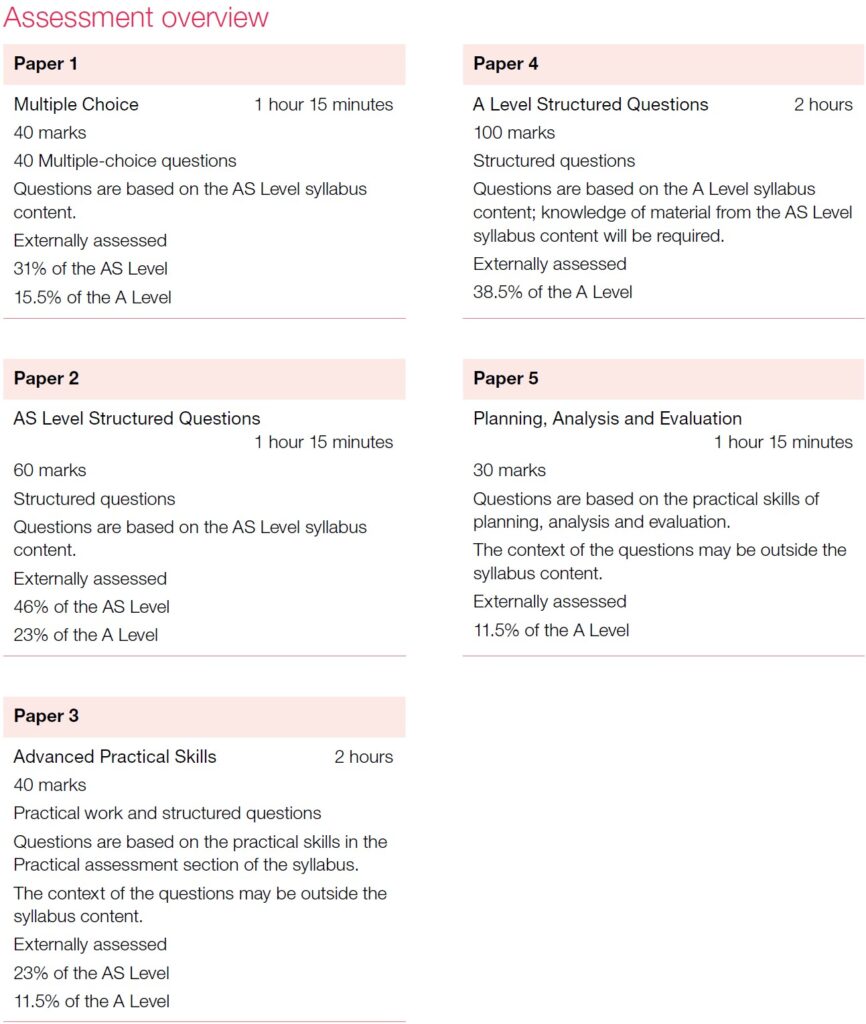
Assessment Overview (Marine Science only)
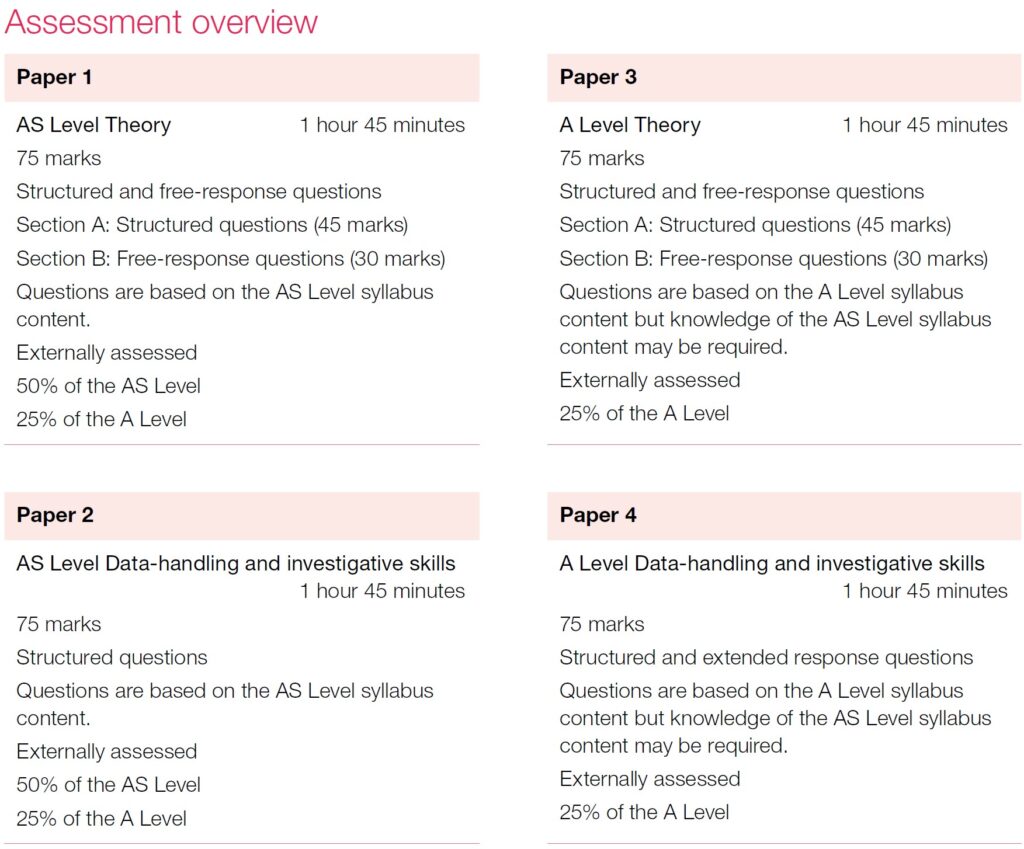
Textbooks
| Biology | Chemistry | Marine Science | Physics |
|---|---|---|---|
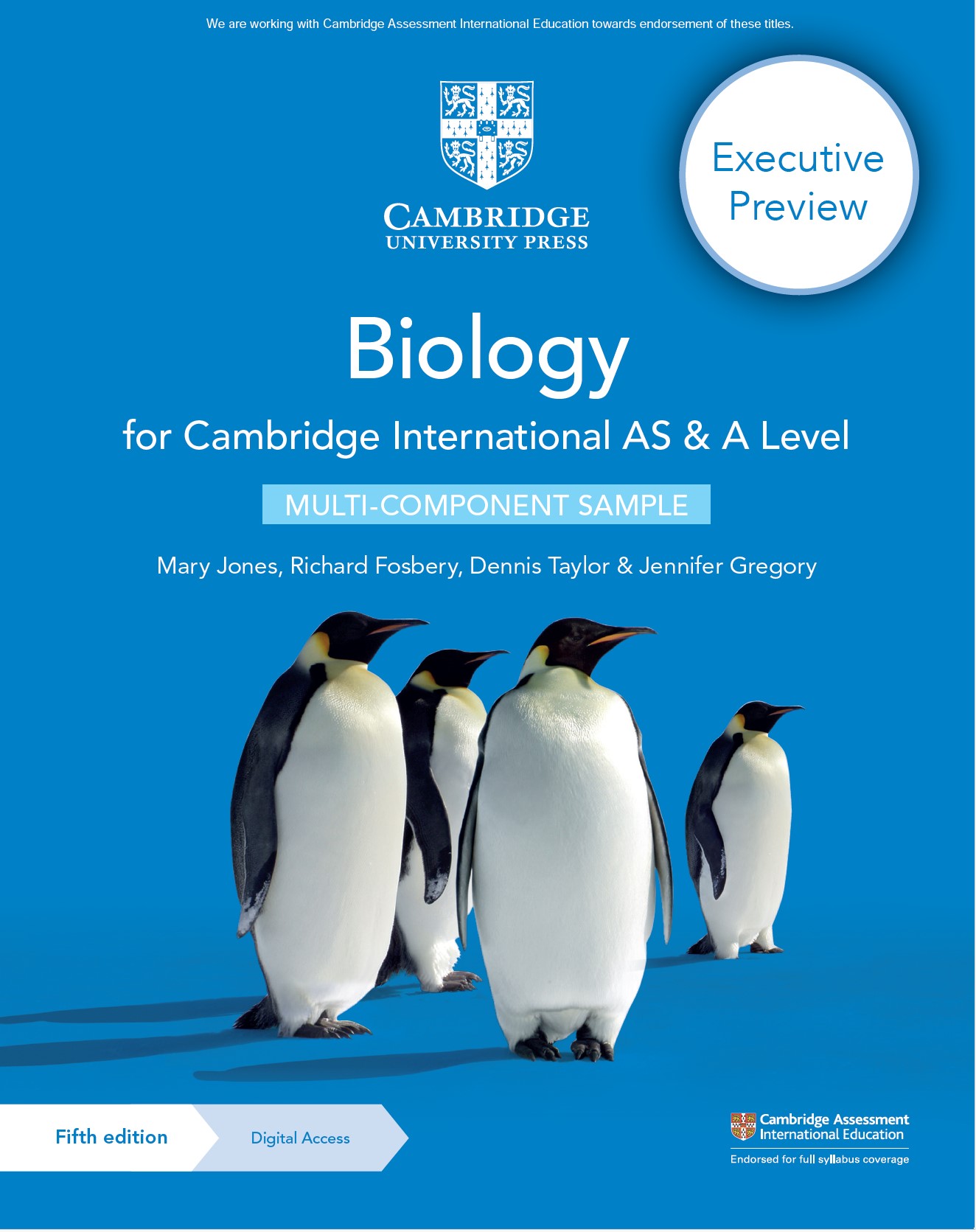 | 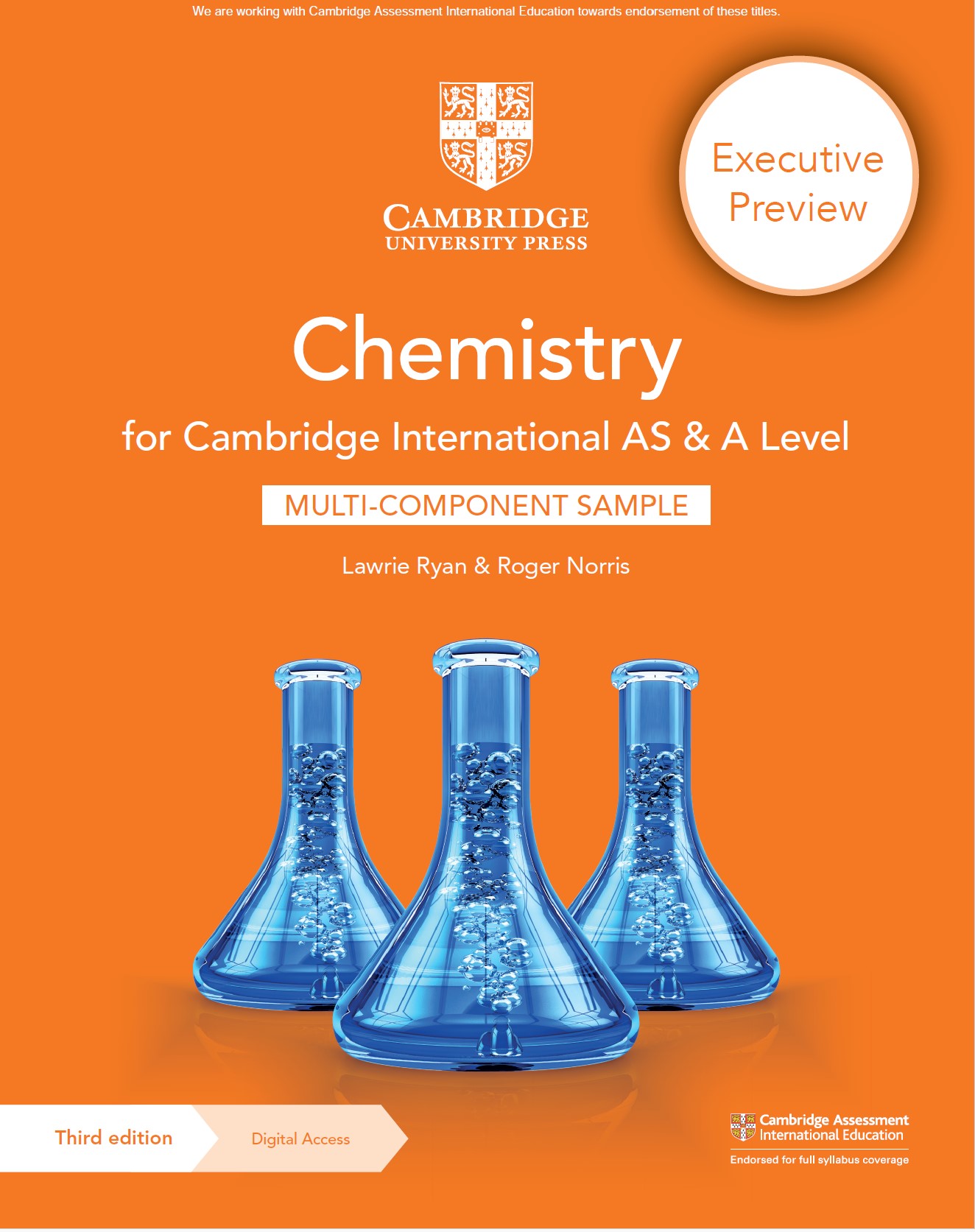 | 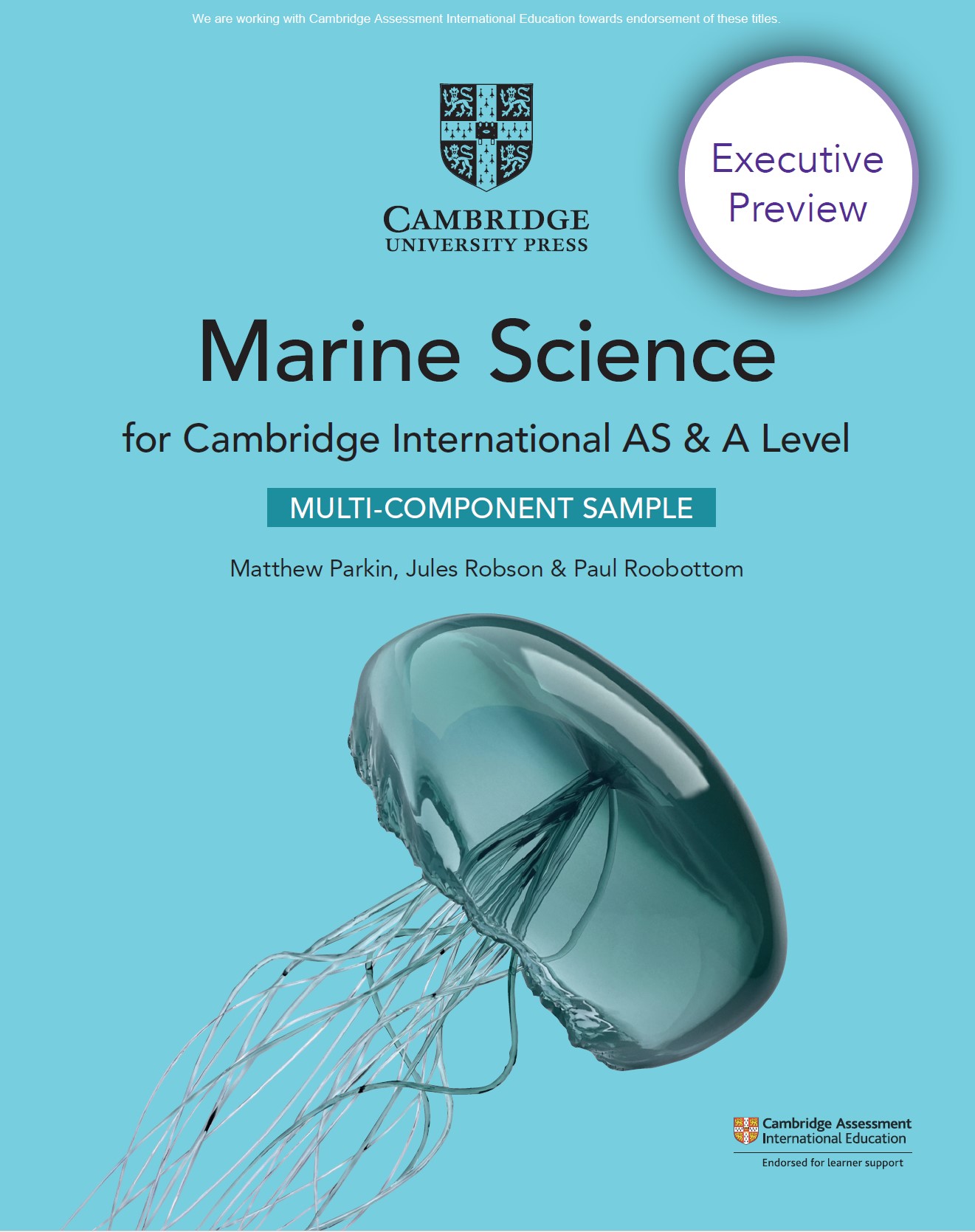 | 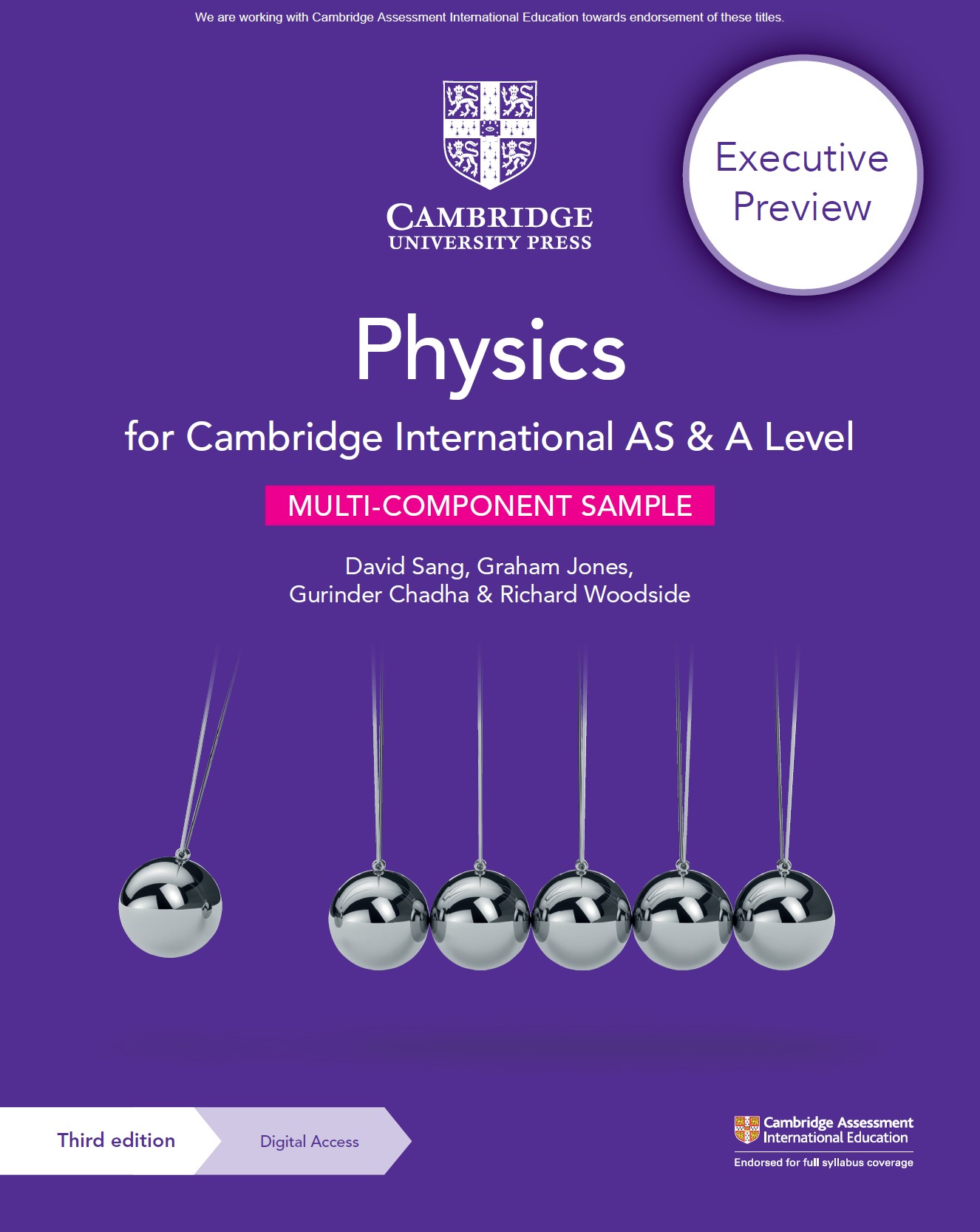 |
| Cambridge International AS & A Level Biology Coursebook with Digital Access ISBN:9781108859028 | Cambridge International AS & A Level Chemistry Coursebook with Digital Access ISBN:9781108863193 | Cambridge International AS & A Level Marine Science Coursebook with Digital Access ISBN:9781108866064 | Cambridge International AS & A Level Physics Coursebook with Digital Access ISBN:9781108859035 |
Useful Websites and Resources

